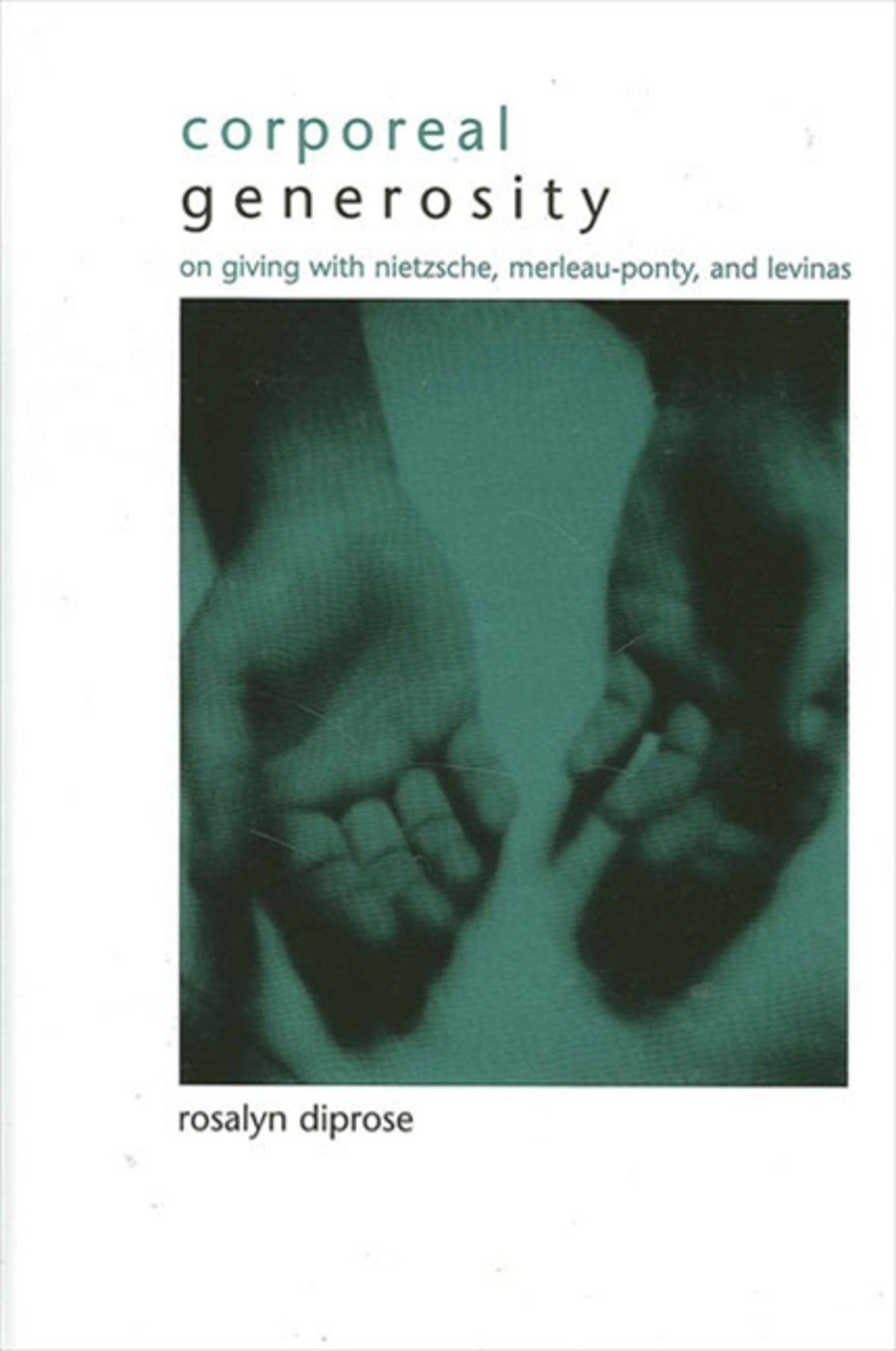We're sorry. An error has occurred
Please cancel or retry.
Corporeal Generosity

Some error occured while loading the Quick View. Please close the Quick View and try reloading the page.
Couldn't load pickup availability
- Format:
-
04 April 2002

Challenges the accepted model, and builds a politically sensitive notion of generosity.
Rosalyn Diprose contends that generosity is not just a human virtue, but it is an openness to others that is critical to our existence, sociality, and social formation. Her theory challenges the accepted model of generosity as a common character trait that guides a person to give something they possess away to others within an exchange economy. This book places giving in the realm of ontology, as well as the area of politics and social production, as it promotes ways to foster social relations that generate sexual, cultural, and stylistic differences. The analyses in the book theorize generosity in terms of intercorporeal relations where the self is given to others. Drawing primarily on the philosophy of Nietzsche, Merleau-Ponty, and Levinas, and offering critical interpretations of feminist philosophers such as Beauvoir and Butler, the author builds a politically sensitive notion of generosity.


"This book is outstandingly original and will have a very significant impact on contemporary ethical and social theory. It possesses an enviable maturity, displayed through the ease with which the author utilizes insights from a variety of philosophical sources in order to present her own original account of 'corporeal generosity'" — Moira Gatens, author of Imaginary Bodies: Ethics, Power and Corporeality
"The topic of generosity, and relating the notion beyond personal virtue to its foundational place in politics, is both significant and marks an important contribution to ethics and politics." — Agnes B. Curry, Saint Joseph College
Acknowledgments
Introduction: Introducing Generosity
Part I. Giving Identity and Difference
1. Nietzsche and the Pathos of Distance
2. Giving Sexed Corporeality before the Law
3. Performing Body-Identity through the Other
Part II. Generosity and the Politics of Affectivity
4. Erotic Generosity and Its Limits
5. Affectivity and Social Power: From Melancholia to Generosity
6. Sexuality and the Clinical Encounter
Part III. Generosity and Community (Trans)Formation
7. Thinking through Radical Generosity with Levinas
8. Truth, Cultural Difference, and Decolonization
9. Generosity, Community, and Politics
Conclusion
Notes
Bibliography
Index



